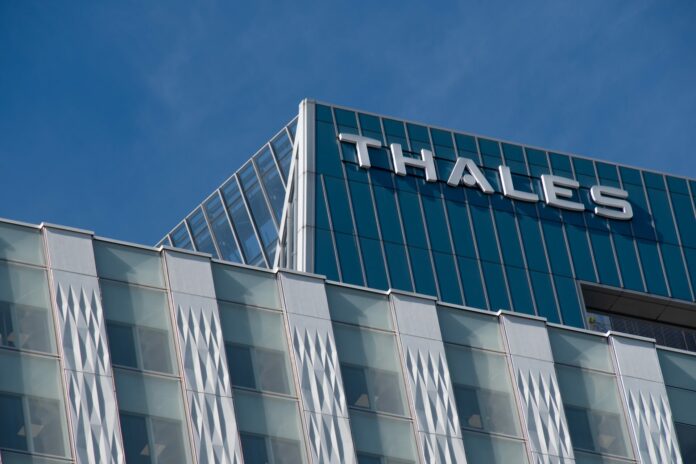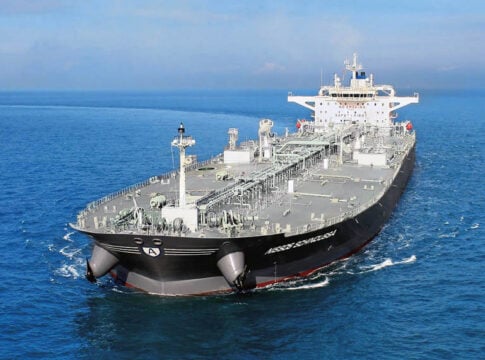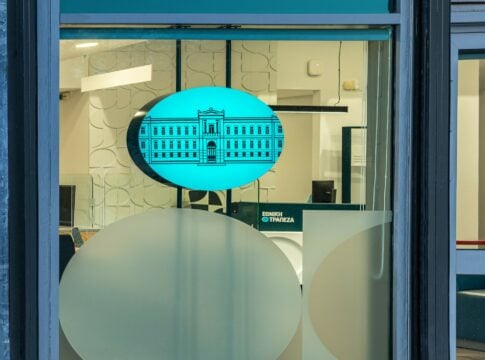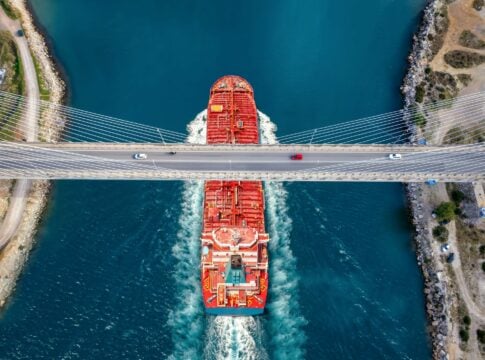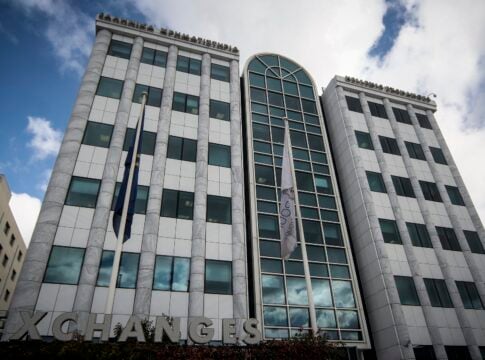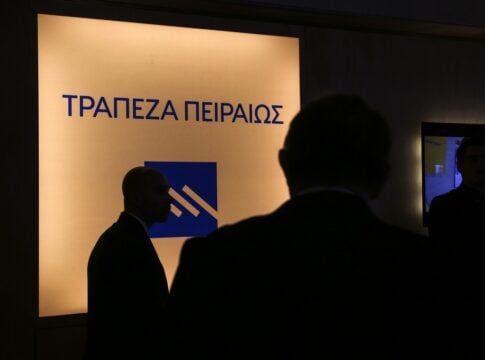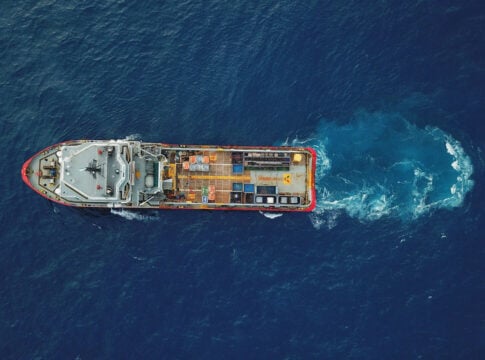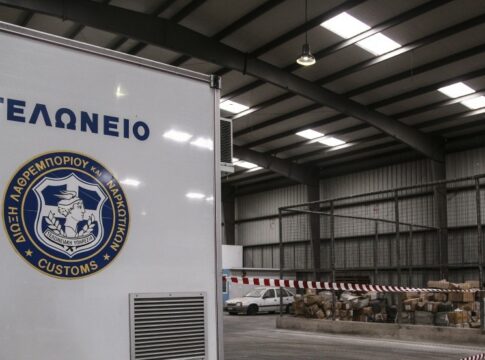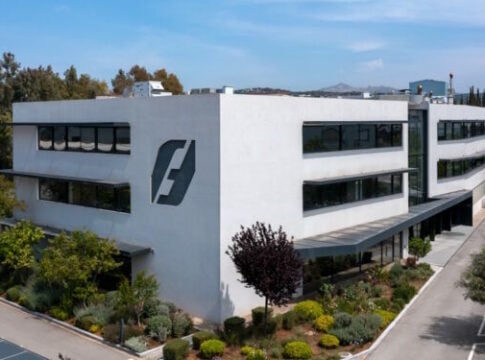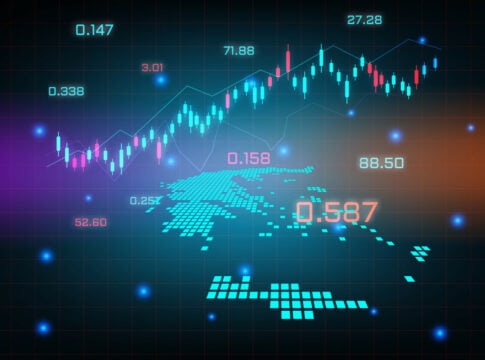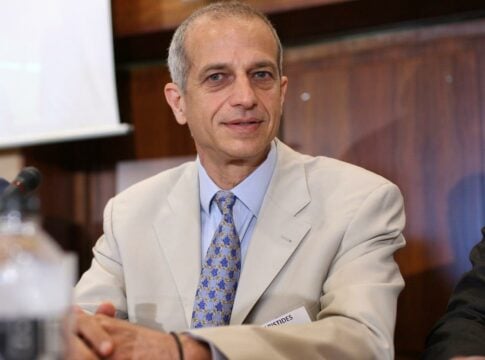In a Europe that is now aware of the need for strategic autonomy and strengthening its defense capabilities, a French technological and defense giant is investing steadily and dynamically in Greece.
Thales, with 50 years of uninterrupted presence in the country, is expanding its footprint, proceeding with new military and technological agreements. Pascale Sourisse, Senior Executive Vice-President and member of the Executive Committee, who visited our country for the international DEFEA exhibition, spoke exclusively to “N” about the future of Greek defense, the new European geostrategic reality and the power of artificial intelligence.
With decades of personal experience in the telecommunications, space and defense sectors, and an active role in transforming Thales into a global power with a turnover of 20.6 billion euros in 2024, Sourisse is well aware of the importance of technological superiority in times of geopolitical fluidity. The message? Thales is here to stay – and to invest more.
From Mirage and Rafale to cybersecurity and from frigates to cooperation with universities, the company is operating in many sectors in Greece. And it intends to go much further.
Multifaceted presence, clear vision
Thales’ relationship with Greece goes back half a century, but today it takes on a new meaning. “Our strategy going forward is really to make sure we serve Greek customers in the best possible way” Sourisse noted. And this does not only concern the armaments programs, but the entire spectrum of the company’s activities – from defense and aeronautics to technology and cybersecurity.
Thales, with over 83,000 employees in 68 countries, operates in three main sectors: defense, aerospace (including satellites) and digital technologies/cybersecurity. In Greece, it has participated in all the major stages of the country’s military development.
From Mirage to Rafale and new generation systems
“We have a longstanding relationship. A number of years back, we were involved in the Mirage aircraft contract. We also supplied the Crotale air defense system and more recently Thales is involved in the Rafale project with Dassault. In the Rafale project we supply the avionics on board the aircraft, electronic warfare, communication systems, electronics, etc. And, well, we are of course continuing to support the install base that was delivered a long time ago. And we are now currently discussing with the Greek authorities, Greek Ministry of Defense, about new generation systems for air defense, air surveillance, air defense”.
Thales Hellas has also undertaken the installation and support of the Air Command and Control System (ACCS) for NATO in Larissa, while the company’s Greek engineers support it throughout Europe.
Strategic partner of the Navy
Thales also supplies combat systems, radars, electronics and communications for a large part of the Navy’s ships. It has a key role in the Belharra frigates in collaboration with Naval Group, while it also participates in the MEKO program, with the prospect of upgrading existing systems and adding new platforms.
“There is a possibility of acquiring a fourth frigate. We are in close cooperation with the Naval Group” she noted, adding that Thales is interested in deepening cooperation in submarines and other naval infrastructure.
The “next generation” of solutions in the Army
Thales has previously supplied the Army with tactical radio systems and electronic warfare equipment. Today, it is discussing with the Ministry of Defense about the next generation of systems – with communication networks, interoperability solutions and digital field applications.
Satellites and digital transformation
Thales also maintains cooperation with commercial entities, such as Hellas Sat, and participates in military satellite communications programs that are under design.
At the same time, it invests in digital identity and secure document programs with government agencies.
The Group is not limited to technology exports. It wants an active role in Greece. “We have launched a program to identify Greek companies that can join our global supply chain. We select them, support them and integrate them into international projects. It is a huge export opportunity for the Greek companies and for the country,” explains Ms. Sourisse.
The goal is also to cooperate with universities, both to recruit talent and to jointly develop innovation. At the same time, Thales is increasing its human resources in Greece, so that Thales Hellas can take on a greater share of supporting Greek customers and participating in European projects. “It’s a tremendous plus to be able to rely on Greek employees” she noted, since local support makes a difference.
Artificial Intelligence is Changing Everything
Thales is also a leader in the field of Artificial Intelligence. With more than 600 specialists and a target of 800 by the end of the year, the company has already integrated AI into over 100 products. From radars to reconnaissance pods for the Rafale, AI is accelerating decision-making and increasing accuracy.
The Talios pod collects huge amounts of imagery. The pilot has to fly, locate and target simultaneously. AI reduces the workload and helps to understand the data, identify targets and control the success of the mission. “The mental load for the pilot is huge. So the artificial intelligence is essential to be able to process data very quickly and immediately help the user, the pilot, to identify whether this is really the target, what kind of target he’s seeing, type of vehicle that he’s seeing, or type of building he’s seeing, etc., and whether this is the right target for the mission. And then check whether, once the weapon systems have been activated, whether the target is destroyed or not”.
Thales’ CortAIx unit is the Group’s AI accelerator, designing solutions for armed forces, aircraft manufacturers and critical infrastructure.


